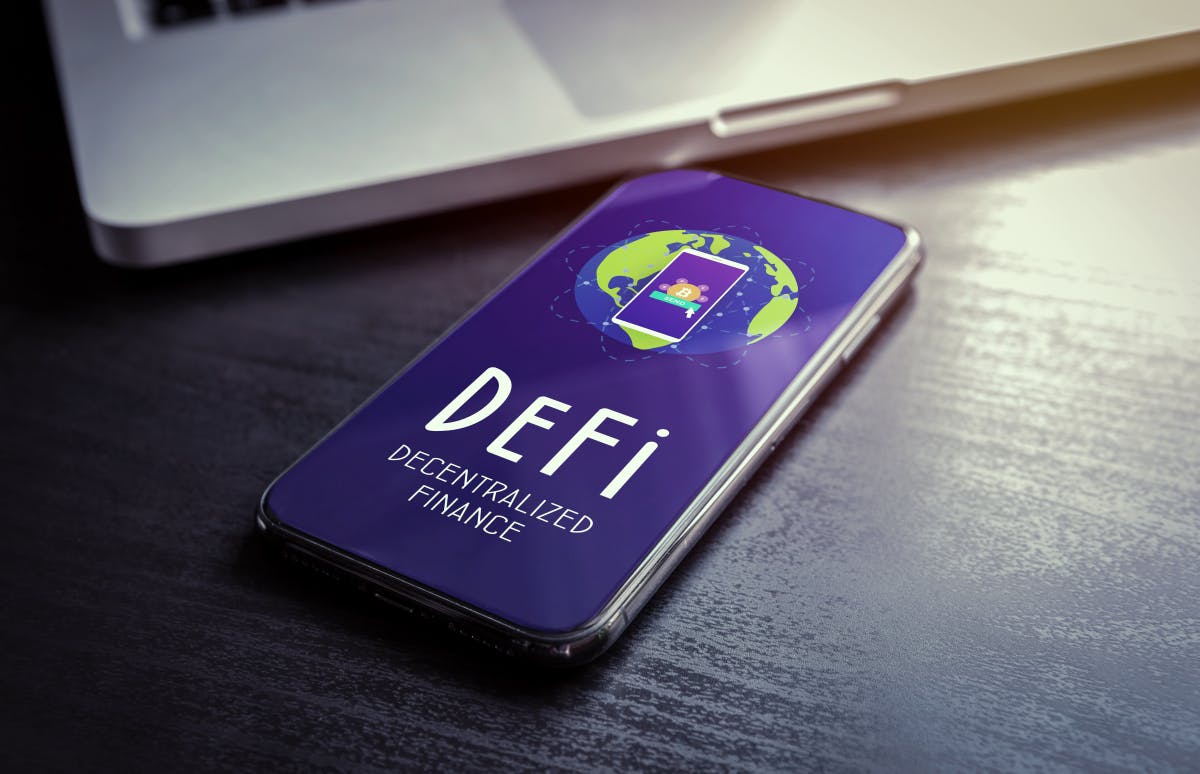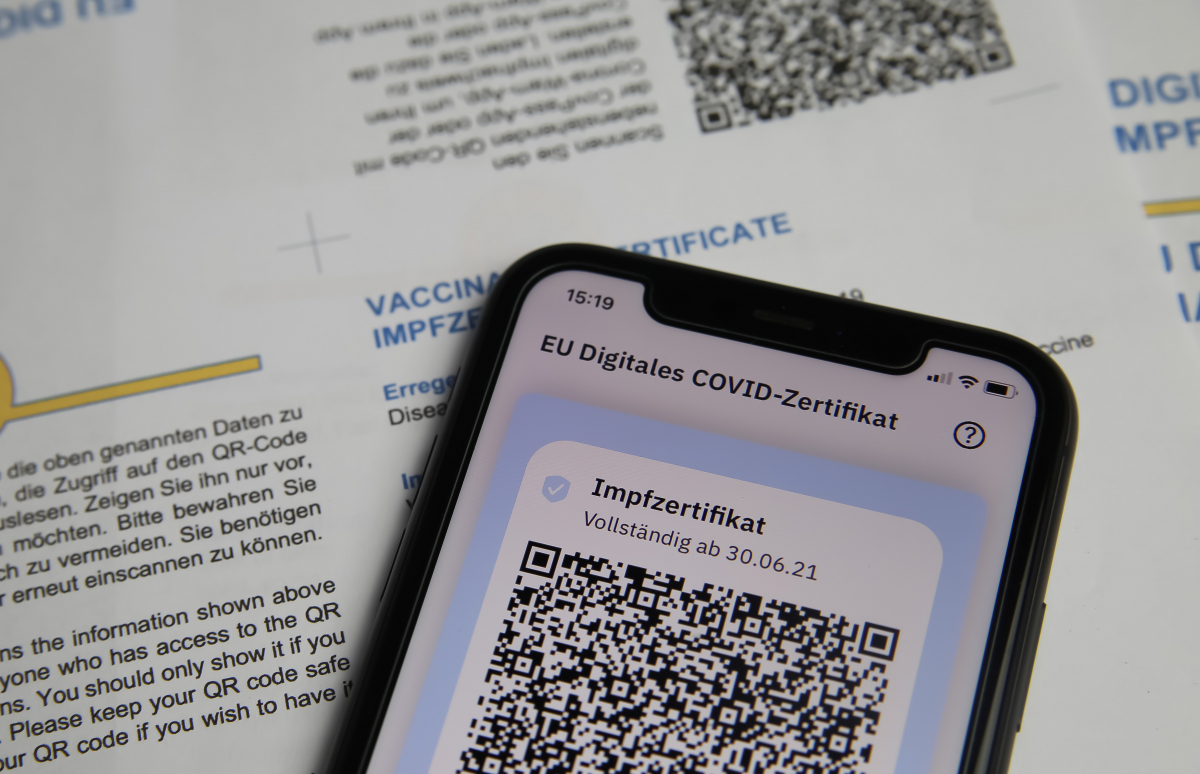What you need to know about decentralized finance and how you can benefit
Defi is exciting for investors. Those who do not shy away from experimental forms of investment and have basic knowledge of cryptocurrencies can bypass the classic financial intermediaries.
With investment options for everything to do with defi, exceptionally high profits can be made for all associated risks. As always, however, the best case scenario is that you don’t invest in anything that you don’t understand. The following brief explanation on the subject of decentralized finance provides an initial introduction.
Defi stands for decentralized finance. Technologically, these are based on blockchain structures. An autonomous organization and smart contracts play the decisive role here. Typical characteristics are the creation of a transparent ecosystem for financial services, the open source orientation and the freedom of permission. A central authority is not required, everyone has access to these financial markets. The interactions take place peer-to-peer and via various decentralized applications.
Contents
How does the technology behind Defi work?
The prerequisite for the implementation of decentralized financial markets is that the underlying blockchain technology supports smart contracts. Smart contracts implement contracts as computer programs and have self-executable and self-enforceable contract conditions. The Bitcoin blockchain, for example, only partially includes the required instruction sets for smart contracts.
Defi relies on the blockchain in general and on smart contracts in particular. (Image: Pixels Hunter / Shutterstock)
The control is decentralized. That is the decisive difference to the traditional financial markets with their centrally acting financial intermediaries. The banks and securities dealers should be mentioned here in particular. These do not apply to the decentralized model.
Order now!

(Graphic: t3n)
How can I invest with Decentralized Finance?
Decentralized finance works without institutions that take on an intermediary or arbitrator role. Users control their money themselves and benefit from lower costs in terms of provision and use. All solutions to potential disputes are already set out in the code.
The distribution of the data to the nodes of a blockchain offers the typical advantages such as high reliability and protection against manipulation. Attempts at censorship make the blockchain considerably more difficult or impossible. Shutting down the service would also involve a lot of effort.

An example of Defi is the decentralized exchange pancake swap, which is based on the Binance chain. (Image: Pancake Swap)
Other benefits include simple and straightforward deployment and access for people who have previously not been able to participate in traditional financial systems. It is an open ecosystem. In traditional financial systems, the intermediaries have to make a profit, so offering the services is not worthwhile for low-income target groups. This problem does not exist with the decentralized approach.
More than just buying coins: What are the possible uses for Defi?
In practice, you can use the technology in different ways. The following applications are conceivable:
- Borrowing: Decentralized financial markets offer various advantages for borrowing and lending, such as the immediate processing of transactions or the waiver of a credit check and the reduction of counterparty risk.
- Decentralized exchanges: Users trade their digital assets without exchanges or other intermediaries to manage the funds. Trading fees are lower because maintenance is minimal. Decentralized financial markets eliminate the need for trustees to issue financial instruments, for example.
- Monetary banking services: These include issuing insurance or mortgages. Stablecoins are an important application in this area. Similar to Bitcoin, these tokens offer the advantage of easy digital transferability and could serve as a cash substitute.
{
“@Context”: “https://schema.org”,
“@Type”: “FAQPage”,
“MainEntity”: [{
„@type“: „Question“,
„name“: „Was ist Defi?“,
„acceptedAnswer“: {
„@type“: „Answer“,
„text“: „Defi steht für dezentralisierte Finanzmärkte (engl.: Decentralized Finance). Technologisch bauen diese auf Blockchain-Strukturen auf. Eine autonome Organisation und Smart Contracts spielen hier die entscheidende Rolle. Typische Eigenschaften sind die Schaffung eines transparenten Ökosystems für Finanzdienstleitungen, die Open-Source-Ausrichtung und die Erlaubnisfreiheit.“
}
},{
„@type“: „Question“,
„name“: „Wie funktioniert die Technologie hinter Defi?“,
„acceptedAnswer“: {
„@type“: „Answer“,
„text“: „Voraussetzung für die Umsetzung dezentralisierter Finanzmärkte ist es, dass die zugrunde liegende Blockchain-Technologie Smart Contracts unterstützt. Smart Contracts setzen Verträge als Computerprogramm um und verfügen über selbstausführbare und selbstdurchsetzbare Vertragsbedingungen. „
}
},{
„@type“: „Question“,
„name“: „Wie kann ich mit Decentralized Finance investieren?“,
„acceptedAnswer“: {
„@type“: „Answer“,
„text“: „Decentralized Finance funktioniert ohne Institutionen, die eine Vermittler- oder Schiedsrichter-Rolle einnehmen. Die Nutzer kontrollieren ihr Geld selbst und profitieren von geringeren Kosten in Bezug auf Bereitstellung und Nutzung. Im Code sind bereits alle Lösungen für potenzielle Streitigkeiten festgelegt.“
}
},{
„@type“: „Question“,
„name“: „Welche Anwendungsmöglichkeiten gibt es für Defi?“,
„acceptedAnswer“: {
„@type“: „Answer“,
„text“: „Kreditaufnahme: Dezentralisierte Finanzmärkte bieten für die Kreditaufnahme und die Kreditgewährung verschiedene Vorteile wie etwa eine umgehende Abwicklung der Transaktionen oder den Verzicht auf eine Bonitätsprüfung sowie die Reduktion des Gegenparteirisikos.
Dezentralisierte Börsen: Die Nutzer handeln ihre digitalen Assets ohne Tauschbörsen oder andere Vermittler für die Verwaltung der Gelder. Die Trading-Gebühren fallen geringer aus, da der Wartungsaufwand minimal ist. Dezentralisierte Finanzmärkte eliminieren die Notwendigkeit von Treuhändern zum Beispiel für die Ausgabe von Finanzinstrumenten.
Monetäre Bankdienstleistungen: Hierzu gehören die Ausgabe von Versicherungen oder Hypotheken. Ein wichtiger Anwendungsfall in diesem Bereich sind die Stablecoins. Diese Token bieten ähnlich wie Bitcoin den Vorteil der einfachen digitalen Übertragbarkeit und könnten als Bargeldersatz dienen.“
}
}]
}



